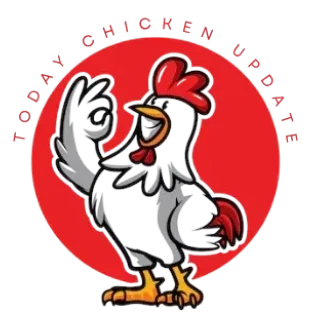Egg Rate in Delhi Today
For millions of people in Delhi, eggs are an essential and reasonably priced source of protein because of their high nutritional content, low cost, and capacity to be used in a variety of dishes. An essential source of protein for both restaurant kitchens and breakfast tables is eggs. Monitoring Delhi’s daily egg prices enables both buyers and sellers to make informed purchasing decisions. It is crucial to monitor Delhi’s daily egg pricing, whether you are managing a hostel kitchen, cooking at home, or operating a food company. It’s critical to monitor Delhi’s daily egg pricing, whether you’re managing a hostel kitchen, operating.

Egg Prices Today
Daily fluctuations in supply, demand, weather, and feed costs all affect egg pricing. Typically, the National Egg Coordination Committee (NECC) or regional poultry groups establish rates.
| City | 1 Egg (₹) | 1 Dozen (₹) | 1 Tray – 30 Eggs (₹) |
| Delhi | ₹5.10 | ₹61.20 | ₹153.00 |
| Mumbai | ₹5.20 | ₹62.40 | ₹156.00 |
| Kolkata | ₹5.00 | ₹60.00 | ₹150.00 |
| Chennai | ₹5.00 | ₹60.00 | ₹150.00 |
| Hyderabad | ₹5.15 | ₹61.80 | ₹154.50 |
| Pune | ₹5.25 | ₹63.00 | ₹157.50 |
| Lucknow | ₹5.40 | ₹64.80 | ₹162.00 |
Prices may vary slightly by locality or vendor.
Market-Wise Egg Prices in Delhi
Egg rates in Delhi differ depending on where you shop, a wholesale mandi, a retail store, or an online delivery platform.
| Market Type | 1 Egg (₹) | 1 Tray – 30 Eggs (₹) |
| Wholesale Market | ₹4.90 | ₹147.00 |
| Supermarket/Local Shop | ₹5.10 | ₹153.00 |
| Online (e.g., BigBasket) | ₹5.25 | ₹157.50 |
Egg Prices in Newspapers
Newspapers like Hindustan Times (Delhi Edition), Dainik Jagran, and Navbharat Times frequently carry agricultural and mandi reports that include egg rates. However, real-time changes are simpler to get online than in e-papers.
For accuracy, most vendors refer to NECC or poultry company bulletins such as:
| Source | 1 Egg Rate (₹) |
| NECC (Delhi) | ₹5.10 |
| Suguna Farms | ₹5.20 |
| Vencobb Poultry | ₹5.10 |
Egg Rates Trends in Delhi
Eggs prices in Delhi are influenced by various factors:
- Weather Conditions: Cold winters and intense heat waves affect hen productivity.
- Feed & Fuel Prices: Rising feed and transport costs push egg prices up.
- Seasonal Demand: School reopenings, epidemics, and health seasons increase egg consumption.
- Supply Chain Disruptions: Bird flu outbreaks or transport issues can spike prices.
Egg Consumption in Delhi
Delhi, with a population exceeding 20 million, consumes millions of eggs per day.
Key Consumption Statistics:
- Urban households: 3–4 eggs per week per person on average.
- Institutions: Schools, hostels, and hospitals bulk-purchase eggs daily.
- Food industry: Bakeries, hotels, and restaurants are major buyers.
- Per capita egg consumption in India: ~95 eggs/year (2025 est.), Delhi is slightly above the national average.
Challenges in Egg Production & Distribution
The egg market in Delhi faces many challenges.
1. Logistical Issues
- Eggs are fragile and require careful transport.
- Heat waves cause spoilage and reduce shelf life.
2. Supply Chain Fluctuations
- Shortages in Haryana or UP directly impact Delhi prices.
3. Health Concerns
- Bird flu outbreaks cause panic, affecting demand.
4. Market Monopoly Risks
- Pricing heavily depends on NECC and major poultry players.
Conclusion
In Delhi, one egg costs ₹5.10, ₹61.20 for a dozen, and ₹153.00 for a tray of thirty. Climate, local demand, and the cost of chicken feed all affect prices. Despite Delhi’s continued high egg consumption owing to its affordability and nutritional value, the industry’s future is still being shaped by economic and environmental concerns.
FAQ’s
What is the price of an egg in Delhi today?
The price of Delhi today is ₹5.10 per egg, ₹153.00 per tray of 30 eggs.
Who decides the egg rate in Delhi?
Rates are generally set by the NECC and influenced by local market conditions.
How many eggs does Delhi consume daily?
Several million eggs are laid daily across homes, food services, and institutions.
What affects egg prices in Delhi?
Supply chain efficiency, feed cost, weather, festivals, and poultry health.
